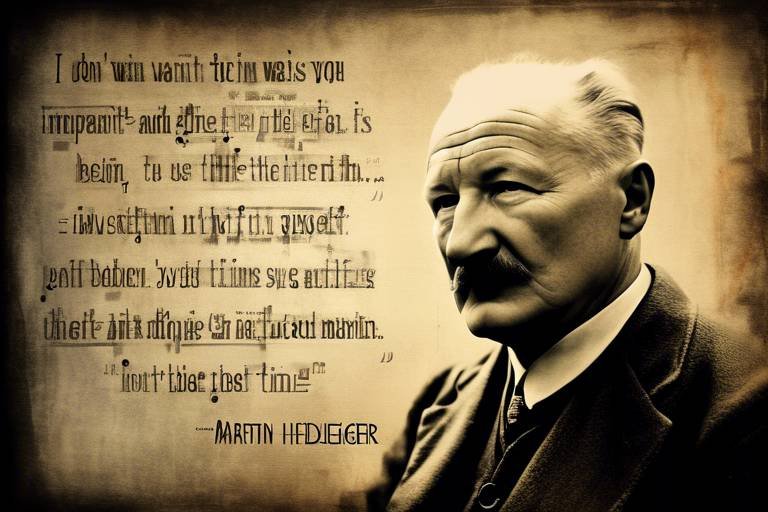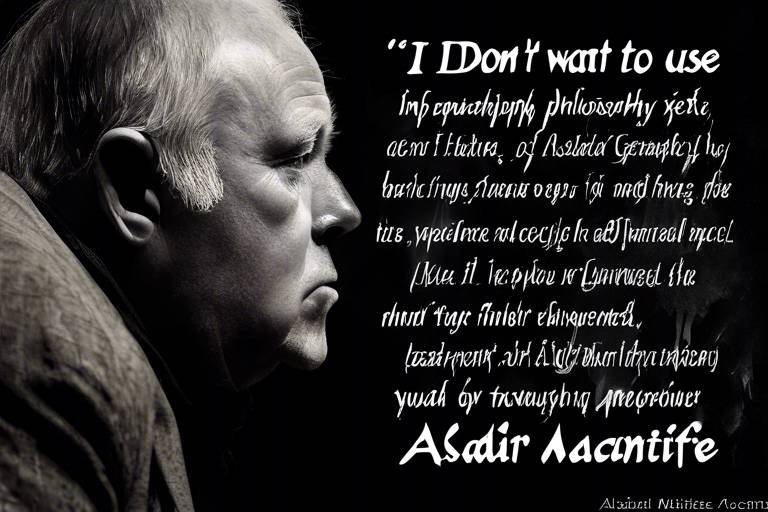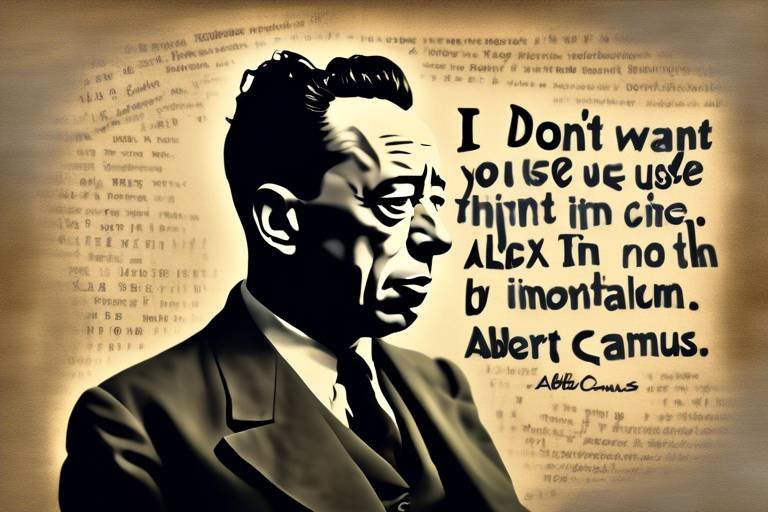Taking a Closer Look at Marxism and Its Influence
Marxism, a term that often evokes passionate discussions and varied interpretations, is more than just a political ideology; it is a lens through which we can examine the complexities of society. At its core, Marxism seeks to understand the dynamics of power, class, and economic systems, laying bare the struggles that shape our world. This article explores the fundamental principles of Marxism, its historical context, and its ongoing impact on politics, economics, and social movements worldwide. By diving deep into the origins and core tenets of Marxism, we can appreciate its significance in both historical and contemporary settings.
Imagine standing at the crossroads of history, where the struggles of the working class and the elite collide. This is where Karl Marx enters the scene, a man whose ideas would ripple through time and influence countless movements. Born in 1818 in Prussia, Marx lived during a period of tremendous social upheaval, characterized by the rise of industrial capitalism. The factories were booming, but so were the disparities between the wealthy bourgeoisie and the impoverished proletariat. It is within this turbulent backdrop that Marx crafted his theories, aiming to illuminate the injustices of his time and inspire change.
The essence of Marxism lies in its critique of capitalism and its exploration of class struggle. This ideology posits that history is driven by the conflicts between different social classes, primarily the bourgeoisie, who own the means of production, and the proletariat, who sell their labor. Marx argued that this inherent conflict would eventually lead to revolutionary change, as the oppressed working class would rise against their oppressors. But what does this mean for us today? How do these ideas resonate in our current socio-political landscape?
As we navigate through the complexities of modern society, the relevance of Marxism remains palpable. From labor rights movements to discussions about wealth inequality, Marxist principles continue to shape the discourse around social justice. By analyzing the historical impact of Marxism and its adaptation in contemporary society, we can uncover the lasting legacy of Marx's ideas. So, let’s embark on this journey to understand not just the theory but the real-world implications of Marxism and its influence on our lives today.
- What is Marxism? - Marxism is a socio-political and economic theory that critiques capitalism and advocates for a classless society.
- Who was Karl Marx? - Karl Marx was a German philosopher, economist, and revolutionary socialist whose ideas laid the foundation for Marxist theory.
- How does Marxism relate to modern social movements? - Many contemporary movements draw on Marxist principles to address issues of inequality, labor rights, and social justice.
- What are the critiques of Marxism? - Critics argue that Marxism is overly deterministic and has led to authoritarian regimes, while proponents claim it remains relevant in addressing capitalist exploitation.

Historical Background of Marxism
Understanding the origins of Marxism is essential to grasp its evolution and significance. The roots of Marxism can be traced back to the mid-19th century when Europe was undergoing significant social and political upheaval. Karl Marx, born in 1818 in Prussia, was a philosopher, economist, and revolutionary socialist who, alongside Friedrich Engels, laid the groundwork for this influential ideology. The socio-political climate of the time was marked by the rise of industrial capitalism, which transformed society in profound ways.
During this era, the Industrial Revolution was in full swing, leading to the emergence of a new social class—the proletariat or working class. This class was characterized by their labor in factories, often under harsh conditions and for meager wages. In stark contrast stood the bourgeoisie, the capitalist class that owned the means of production and profited from the labor of the proletariat. The relationship between these two classes was fraught with tension, as the bourgeoisie sought to maximize profits while the proletariat fought for better wages and working conditions.
Marx's experiences and observations during this tumultuous period influenced his writings, particularly the Communist Manifesto, published in 1848. This seminal work outlined the principles of Marxism, calling for the proletariat to unite and overthrow the bourgeoisie. It was a rallying cry for the oppressed, emphasizing that class struggle was the driving force of historical development. Marx believed that history was a series of conflicts between different social classes, which ultimately led to revolutionary change.
Additionally, the backdrop of the 1848 Revolutions across Europe highlighted the growing discontent with existing social structures. These uprisings were fueled by demands for political rights, social justice, and economic equality. Although many of these revolutions ultimately failed, they set the stage for the spread of Marxist ideas. Marx and Engels argued that the failures of these revolutions were not in vain; rather, they were necessary steps toward the eventual victory of the proletariat.
In summary, the historical context of Marxism is deeply intertwined with the rise of industrial capitalism and the struggles of the working class. Marx's insights into the dynamics of class struggle, coupled with the socio-political upheavals of his time, laid the foundation for a powerful ideology that continues to influence political thought and action today. Understanding this background is crucial for anyone looking to comprehend the complexities and nuances of Marxism in both historical and contemporary contexts.
- What is Marxism? - Marxism is a socio-economic and political ideology that critiques capitalism and advocates for a classless society.
- Who was Karl Marx? - Karl Marx was a German philosopher and economist known for his theories on capitalism and socialism.
- What is the significance of class struggle in Marxism? - Class struggle is viewed as the driving force behind societal change and historical development in Marxist theory.
- How did the Industrial Revolution influence Marxism? - The Industrial Revolution created stark class divisions, which Marx analyzed and critiqued in his works.

Core Principles of Marxism
At the heart of Marxism lies a set of foundational principles that not only define its ideology but also provide a lens through which to examine society, economy, and politics. Understanding these core concepts is essential for anyone looking to grasp the profound impact Marxism has had on the world. Let's dive into some of these key ideas, including class struggle, historical materialism, and the critique of capitalism.
One of the most significant tenets of Marxism is the concept of class struggle. This idea posits that society is fundamentally divided into different classes, each with its own interests and conflicts. The struggle between these classes is seen as the driving force behind historical change. Marx identified two primary classes: the proletariat (the working class) and the bourgeoisie (the capitalist class). The dynamic between these two classes is not just a matter of economic disparity; it represents a fundamental conflict of interests, where the bourgeoisie seeks to maintain its wealth and power, often at the expense of the proletariat.
Another critical principle is historical materialism, which suggests that material conditions and economic factors are the primary influences on societal development. According to Marx, the way a society produces and distributes goods shapes its social structures, politics, and culture. This perspective shifts the focus from ideas and ideologies to the material realities of life, emphasizing that changes in the economic base of society will inevitably lead to changes in the superstructure, which includes politics, law, and culture.
Furthermore, Marx's critique of capitalism is a cornerstone of his theory. He argued that capitalism is inherently exploitative, as it relies on the labor of the proletariat while providing them with only a fraction of the value they produce. This exploitation creates a cycle of inequality and alienation, where workers become disconnected from the products of their labor and their own humanity. Marx believed that this system would ultimately lead to its own downfall, as the contradictions within capitalism would intensify class struggle, culminating in a revolutionary transformation of society.
In summary, the core principles of Marxism provide a framework for understanding the complexities of class dynamics, economic conditions, and the critique of prevailing systems. They challenge us to consider not only the economic aspects of society but also the social and political implications that arise from these structures. As we move forward in our exploration of Marxism, it becomes clear that these principles remain relevant, offering insights into contemporary issues of inequality and injustice.

Class Struggle
Class struggle is not just a dusty old concept from the pages of history; it’s a living, breathing phenomenon that continues to shape our world today. At its core, class struggle represents the tension and conflict between different social classes, primarily the proletariat (working class) and the bourgeoisie (capitalist class). This struggle is deeply rooted in the economic structures of society and is fueled by the inequalities that arise from capitalism. Imagine a tug-of-war where one side is pulling for better wages, working conditions, and rights, while the other side is focused on maximizing profits and maintaining control. The rope in the middle? That’s the very essence of class struggle.
Historically, class struggle has been the engine of social change. From the French Revolution to the labor movements of the 20th century, the push and pull between classes have led to significant shifts in power dynamics. For instance, during the Industrial Revolution, workers banded together to demand fair treatment, leading to the establishment of labor laws and unions. Isn’t it fascinating how a group of individuals, united by a common cause, can challenge the status quo and redefine the rules of engagement? This is the power of class struggle.
The implications of class struggle extend beyond mere economic disputes; they touch on issues of identity, culture, and social justice. When you think about it, class struggle reflects the broader human experience of seeking dignity and respect. In many ways, it’s a narrative that resonates with anyone who has ever felt marginalized or oppressed. The fight for equality is universal, and class struggle serves as a reminder that this fight is ongoing.
In contemporary society, the class struggle manifests in various forms. We see it in movements advocating for minimum wage increases, the fight against systemic racism, and the push for universal healthcare. These movements, often rooted in Marxist principles, highlight the ongoing relevance of class struggle in addressing inequalities. Activists today leverage social media and grassroots organizing to amplify their voices and mobilize support, demonstrating that the spirit of class struggle is very much alive.
To better understand the dynamics of class struggle, let’s break it down into a few key aspects:
- Economic Inequality: The gap between the rich and poor continues to widen, leading to increased tensions.
- Labor Rights: Workers are organizing to demand better wages and conditions, echoing the struggles of past generations.
- Social Justice Movements: Issues such as racial inequality and gender discrimination are intertwined with class struggles, highlighting the multifaceted nature of oppression.
In conclusion, class struggle is a vital component of Marxist theory that continues to resonate in our modern world. It serves as a reminder that the fight for justice and equality is far from over. As we navigate the complexities of contemporary society, understanding class struggle can empower us to advocate for change and challenge the structures that perpetuate inequality.

Proletariat vs. Bourgeoisie
The relationship between the proletariat and the bourgeoisie is at the heart of Marxist theory, serving as a lens through which we can understand the dynamics of class conflict. In simple terms, the proletariat refers to the working class—those who sell their labor for wages—while the bourgeoisie represents the capitalist class, who own the means of production and, consequently, reap the profits generated by the labor of others. This dichotomy creates a fundamental tension within society, as both classes have opposing interests. The bourgeoisie seeks to maximize profits, often at the expense of the proletariat, who strive for better wages, working conditions, and a more equitable share of the wealth they help create.
To grasp the implications of this relationship, it's essential to consider how these two classes interact within the economic system. The bourgeoisie, as the ruling class, holds significant power over the state and its institutions, which can lead to the perpetuation of policies that favor their interests. Meanwhile, the proletariat often finds itself marginalized, with limited avenues for influence and change. This imbalance is not merely a matter of economics; it extends into the realms of culture, politics, and social norms. For instance, the bourgeoisie may control media narratives, shaping public perception in ways that reinforce their position of power.
Marx believed that this inherent conflict would eventually lead to a revolutionary shift. As the proletariat becomes increasingly aware of their exploitation—a phenomenon Marx termed class consciousness—they may unite to challenge the status quo. This potential for revolution is fueled by the realization that their plight is not an isolated issue but rather a systemic problem rooted in capitalism itself. When the proletariat recognizes that their struggles are shared, they may be compelled to rise against the bourgeoisie, seeking to dismantle the structures that uphold inequality.
Interestingly, the dynamics between these two classes can be illustrated through a simple table that highlights their contrasting characteristics:
| Characteristic | Proletariat | Bourgeoisie |
|---|---|---|
| Ownership | Does not own means of production | Owns means of production |
| Income Source | Wages from labor | Profits from investments |
| Social Power | Limited influence | Significant influence |
| Class Interests | Improved wages and conditions | Maximized profits and control |
As we reflect on the ongoing relevance of Marxist principles in today's society, it's crucial to recognize that the struggle between the proletariat and bourgeoisie is not just a historical relic but a continuous battle that manifests in various forms. From labor strikes to movements advocating for workers' rights, the echoes of this class conflict remain prevalent. Understanding this relationship is vital for anyone interested in the broader implications of economic and social justice, as it lays the groundwork for analyzing how we can work towards a more equitable society.
- What is the main difference between the proletariat and the bourgeoisie?
The proletariat is the working class that sells its labor, while the bourgeoisie is the capitalist class that owns the means of production. - How does class struggle manifest in modern society?
Class struggle can be seen in labor movements, protests for workers' rights, and debates over wealth distribution. - Can the proletariat ever overthrow the bourgeoisie?
According to Marxist theory, a united and conscious proletariat has the potential to rise against the bourgeoisie, leading to revolutionary change.

Revolutionary Potential
The concept of **revolutionary potential** is a cornerstone of Marxist theory, encapsulating the belief that the **proletariat**, or working class, holds the power to instigate profound societal change. Marx envisioned a future where the oppressed would rise against their oppressors, leading to a reconfiguration of societal structures. But what exactly ignites this revolutionary fire? It's often a combination of factors including **economic disparity**, **political oppression**, and a **heightened class consciousness** among the working class. When these elements converge, they create a fertile ground for revolution.
Historically, we have seen this potential manifest in various movements across the globe. For instance, the **Russian Revolution of 1917** was fueled by widespread discontent among workers and peasants who were fed up with the injustices perpetuated by the ruling class. Similarly, the **Chinese Revolution** showcased how revolutionary potential can be harnessed to overthrow an existing regime, leading to the establishment of a new socio-political order. These events illustrate that the conditions necessary for revolution are not merely theoretical; they are very much rooted in the realities of people's lives.
However, the path to revolution is fraught with challenges. The ruling class often employs various strategies to suppress dissent and maintain the status quo. This can include **propaganda**, **state violence**, and **co-optation** of revolutionary movements. Thus, for a revolution to succeed, the proletariat must not only recognize their potential but also be equipped with the means to act upon it. The role of **education**, **organization**, and **solidarity** among the working class cannot be overstated. These elements serve as the backbone of any revolutionary movement, providing the necessary tools to challenge and dismantle oppressive systems.
Moreover, the modern landscape presents new challenges and opportunities for revolutionary potential. In today's interconnected world, social media and digital communication have become powerful tools for mobilization and awareness. Activists can share ideas and strategies across borders, creating a global dialogue about **inequality**, **justice**, and **workers' rights**. This interconnectedness can amplify the revolutionary spirit, as seen in movements like the **Arab Spring** and various labor strikes around the world.
In conclusion, while the revolutionary potential of the proletariat remains a pivotal aspect of Marxist theory, it is essential to recognize the complexities involved in actualizing this potential. The interplay of social, economic, and political factors creates a dynamic environment where revolution can either flourish or falter. As we look to the future, the question remains: will the working class rise to seize their revolutionary potential, or will they remain trapped within the confines of a system designed to keep them subdued?
- What is revolutionary potential in Marxism?
Revolutionary potential refers to the ability of the working class to rise against the ruling class, leading to significant societal change.
- What factors contribute to revolutionary potential?
Key factors include economic disparity, political oppression, and class consciousness among the proletariat.
- Can modern technology influence revolutionary movements?
Yes, tools like social media can facilitate mobilization and increase awareness, making it easier for movements to gain traction.

Historical Impact of Marxism
The impact of Marxism on the world stage is nothing short of profound. Emerging from the intellectual crucible of the 19th century, Marxism has influenced political movements, revolutions, and the formation of new states across the globe. It's fascinating to consider how the ideas of one man, Karl Marx, have reverberated through history, shaping the destinies of nations and the lives of millions. From the Russian Revolution of 1917 to the rise of various socialist movements in Latin America, Marxist theory has provided a framework for understanding class struggle and the quest for social justice.
Marx's critique of capitalism laid the groundwork for numerous revolutionary movements. His ideas inspired leaders like Vladimir Lenin, who adapted Marxist principles to fit the Russian context, ultimately leading to the establishment of the Soviet Union. The Bolshevik Revolution is often cited as a pivotal moment in history where Marxist ideology was put into practice, demonstrating the potential of the proletariat to overthrow the bourgeoisie. The ripple effects of this revolution were felt worldwide, spurring a wave of socialist movements and governments across Europe, Asia, and beyond.
Furthermore, Marxism has influenced various liberation movements, particularly in the 20th century. In countries like Cuba, China, and Vietnam, leaders embraced Marxist principles to combat colonialism and imperialism. For instance, Fidel Castro and Che Guevara utilized Marxist ideology to inspire a revolution that led to the establishment of a socialist state in Cuba, challenging the dominance of U.S. influence in the region. This illustrates how Marxism not only addresses class struggle but also intersects with issues of national identity and resistance against oppression.
Interestingly, the historical impact of Marxism can also be examined through the lens of its adaptations and reinterpretations. Various factions within the Marxist tradition have emerged, each offering unique insights and strategies for achieving social change. For example, the Frankfurt School introduced critical theory, emphasizing culture and ideology, while Maoism adapted Marxism to the agrarian context of China. These adaptations highlight the flexibility and enduring relevance of Marxist thought in addressing contemporary issues.
However, it is essential to acknowledge that the implementation of Marxist ideas has not been without controversy. The authoritarian regimes that arose in the name of Marxism have often been criticized for their oppressive practices and failures to deliver on the promise of a classless society. The historical legacy of Marxism is thus a complex tapestry of achievements and failures, triumphs and tragedies, sparking ongoing debates about its viability as a political and economic framework.
In summary, the historical impact of Marxism is multifaceted, influencing a wide range of political movements and shaping the course of history in significant ways. Its legacy continues to provoke discussion and inspire action, reminding us that the quest for equality and justice remains a powerful force in the world today.
- What are the main ideas of Marxism? Marxism primarily revolves around concepts such as class struggle, historical materialism, and the critique of capitalism.
- How did Marxism influence revolutions? Marxism provided a theoretical foundation for various revolutions, encouraging the working class to rise against the bourgeoisie in pursuit of social justice.
- Are there different interpretations of Marxism? Yes, various interpretations exist, including Leninism, Maoism, and Trotskyism, each adapting Marxist principles to their specific contexts.
- What is the relevance of Marxism today? Marxism continues to influence contemporary social movements, addressing issues of inequality, labor rights, and capitalism's impact on society.
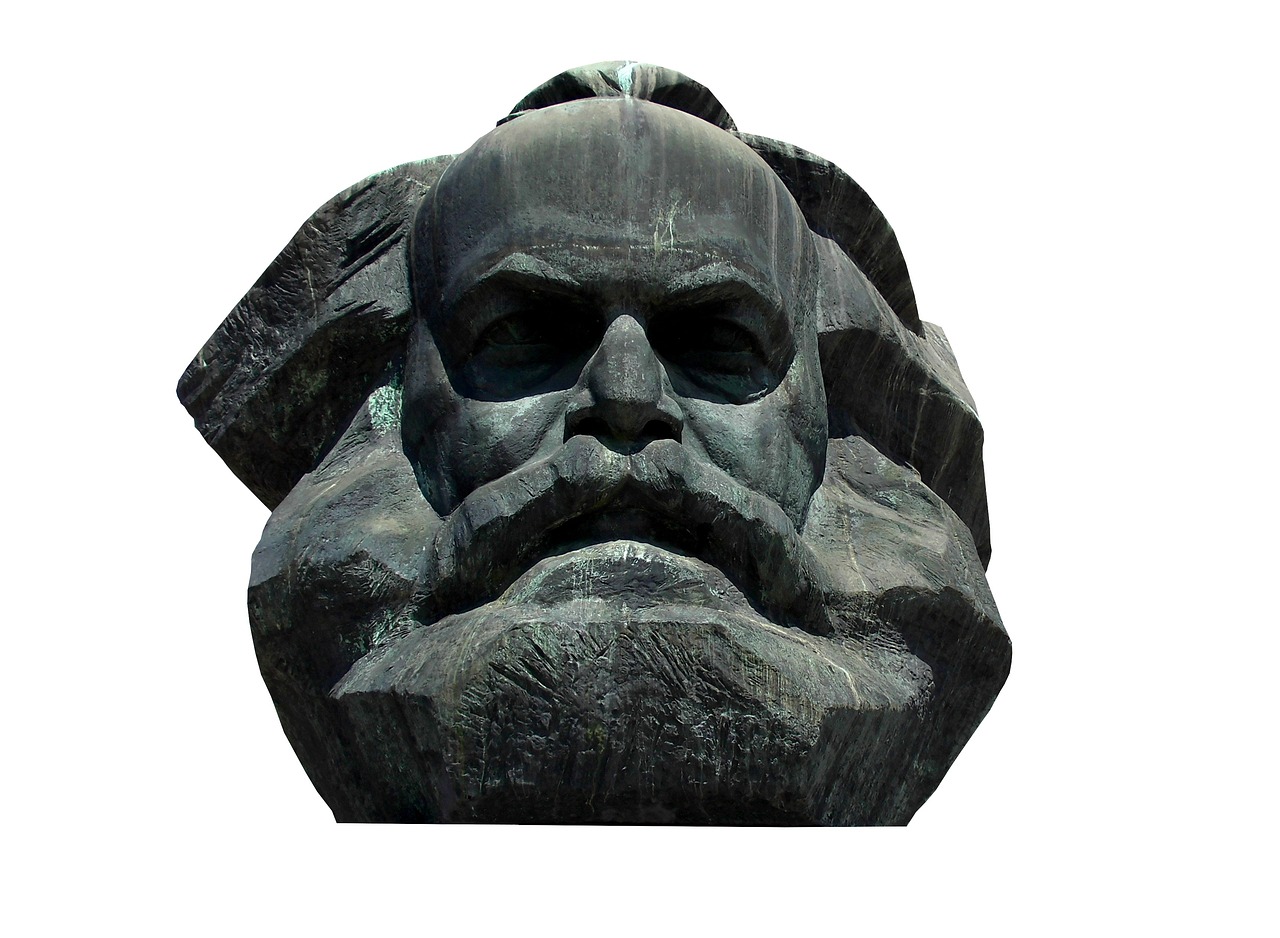
Marxism in Contemporary Society
In today's world, the echoes of Marxism can still be heard resonating through various social movements and political discussions. It’s fascinating to see how the foundational ideas of Karl Marx have adapted and evolved, influencing modern activism and shaping the discourse surrounding inequality, justice, and economic structures. With the rise of global capitalism, many individuals and groups have begun to revisit Marxist theories, seeking solutions to the pressing issues of our time. But how exactly does Marxism manifest in contemporary society?
One of the most significant ways Marxism remains relevant is through its critique of capitalism. As economic disparities widen and the gap between the rich and the poor grows, many activists turn to Marxist principles to articulate their frustrations. They argue that the capitalist system inherently favors the bourgeoisie, leading to exploitation and alienation of the proletariat. This perspective has fueled various movements aimed at challenging the status quo, advocating for policies that promote social welfare, workers' rights, and equitable distribution of resources.
Moreover, the rise of technology and the gig economy has transformed the workforce, creating new challenges that Marxist theory can help address. For instance, many gig workers experience precarious employment conditions, lacking benefits and job security. This situation echoes Marx's ideas about labor exploitation, prompting a resurgence of interest in unionization and collective bargaining. Activists are leveraging these Marxist concepts to organize and demand fair treatment, pushing back against the capitalist norms that prioritize profit over people.
Furthermore, Marxism's influence extends beyond economic discussions; it permeates social justice movements as well. Issues like racial inequality, gender discrimination, and environmental justice are increasingly analyzed through a Marxist lens. Activists argue that these social issues are interconnected with class struggle, emphasizing that true liberation cannot be achieved without addressing the economic systems that perpetuate oppression. For example, movements such as Black Lives Matter and feminist activism often incorporate Marxist critiques to highlight how capitalism exacerbates racial and gender inequalities.
To illustrate the ongoing influence of Marxism in contemporary society, consider the following table that summarizes key areas where Marxist principles are currently applied:
| Area of Influence | Description |
|---|---|
| Economic Inequality | Activists use Marxist theory to critique wealth distribution and advocate for policies that reduce the wealth gap. |
| Labor Rights | Marxist ideas inspire movements for workers' rights, including fair wages and job security in the gig economy. |
| Social Justice | Many social movements incorporate Marxist critiques to address systemic racism, sexism, and environmental issues. |
Despite its resurgence, Marxism is not without its critics. Some argue that its application in modern contexts can be overly simplistic or misaligned with current realities. The debate surrounding Marxism is vibrant and ongoing, with theorists and activists constantly re-evaluating its principles to ensure they fit the complexities of contemporary society. This dynamic nature of Marxism allows it to remain a relevant and powerful tool for analyzing and challenging the structures of power and inequality that exist today.
In conclusion, Marxism continues to exert a profound influence on contemporary society, providing a framework for understanding and addressing the multifaceted issues we face. From economic inequality to social justice, the principles laid out by Karl Marx are being reinterpreted and utilized in innovative ways, demonstrating that the struggle for a fairer world is far from over. As we navigate the challenges of the 21st century, the lessons of Marxism remind us that collective action and critical analysis are essential in the fight for social change.
- What is Marxism? - Marxism is a socio-political and economic theory developed by Karl Marx that critiques capitalism and advocates for a classless society.
- How does Marxism apply to modern social movements? - Many contemporary movements draw on Marxist ideas to address issues of inequality and injustice, arguing that these issues are interconnected with class struggle.
- Is Marxism still relevant today? - Yes, Marxism remains relevant as it provides critical insights into the dynamics of power, class, and economic systems in our contemporary world.

Marxism and Social Movements
Marxism has long served as a powerful ideological foundation for various social movements around the globe. The principles of class struggle and the pursuit of equality resonate deeply with activists seeking to challenge the status quo. In a world where disparities in wealth and power are glaringly evident, Marxist ideas provide a framework for understanding and addressing these inequalities. For many, Marxism acts as a beacon of hope, illuminating the path toward a more just society.
One of the most significant aspects of Marxism's influence on social movements is its emphasis on collective action. The notion that the proletariat—the working class—can unite to overthrow the bourgeoisie—the capitalist class—has inspired countless individuals to join forces in their fight for rights and recognition. This sense of solidarity is not just a theoretical concept; it has manifested in various historical contexts, from labor strikes to anti-colonial movements. For instance, the labor movements of the early 20th century were heavily influenced by Marxist thought, leading to the establishment of trade unions and workers' rights legislation.
Moreover, contemporary social movements continue to draw inspiration from Marxist principles. Whether it's the Black Lives Matter movement addressing systemic racism or the Climate Justice movement advocating for environmental sustainability, many activists use Marxist analysis to highlight how capitalism contributes to social and environmental injustices. By framing their struggles within the context of class struggle, these movements emphasize the interconnectedness of various forms of oppression, urging supporters to recognize that the fight for justice is multifaceted.
To illustrate the influence of Marxism on modern social movements, consider the following table that outlines some prominent movements and their Marxist connections:
| Social Movement | Marxist Connection |
|---|---|
| Labor Movement | Advocates for workers' rights and fair wages, rooted in class struggle. |
| Black Lives Matter | Addresses systemic racism and economic inequality, linking race and class. |
| Climate Justice | Critiques capitalism's role in environmental degradation and advocates for equitable solutions. |
| Feminist Movements | Explores the intersection of gender and class oppression, promoting equality for all. |
In addition to these movements, Marxism has also influenced various political ideologies that advocate for social change. For example, socialism and communism are rooted in Marxist thought, emphasizing the need for systemic change to achieve a more equitable society. These ideologies have inspired numerous political parties and organizations worldwide, pushing for reforms that align with Marxist principles.
However, it's essential to acknowledge that Marxism's association with social movements is not without controversy. Critics often argue that Marxist-inspired movements can lead to authoritarianism or fail to address the complexities of modern society. Nonetheless, the enduring relevance of Marxist thought in contemporary activism underscores the ongoing struggle for justice and equality in an ever-evolving world.
- What is Marxism? - Marxism is a socio-political and economic theory developed by Karl Marx that critiques capitalism and advocates for a classless society.
- How does Marxism influence social movements? - Marxism provides a framework for understanding class struggle, inspiring collective action among activists seeking social justice.
- Are all social movements Marxist? - No, while many movements draw on Marxist principles, there are various ideologies and frameworks that inform social activism.
- What are some critiques of Marxism? - Critics argue that Marxism can lead to authoritarianism and may oversimplify complex social issues.
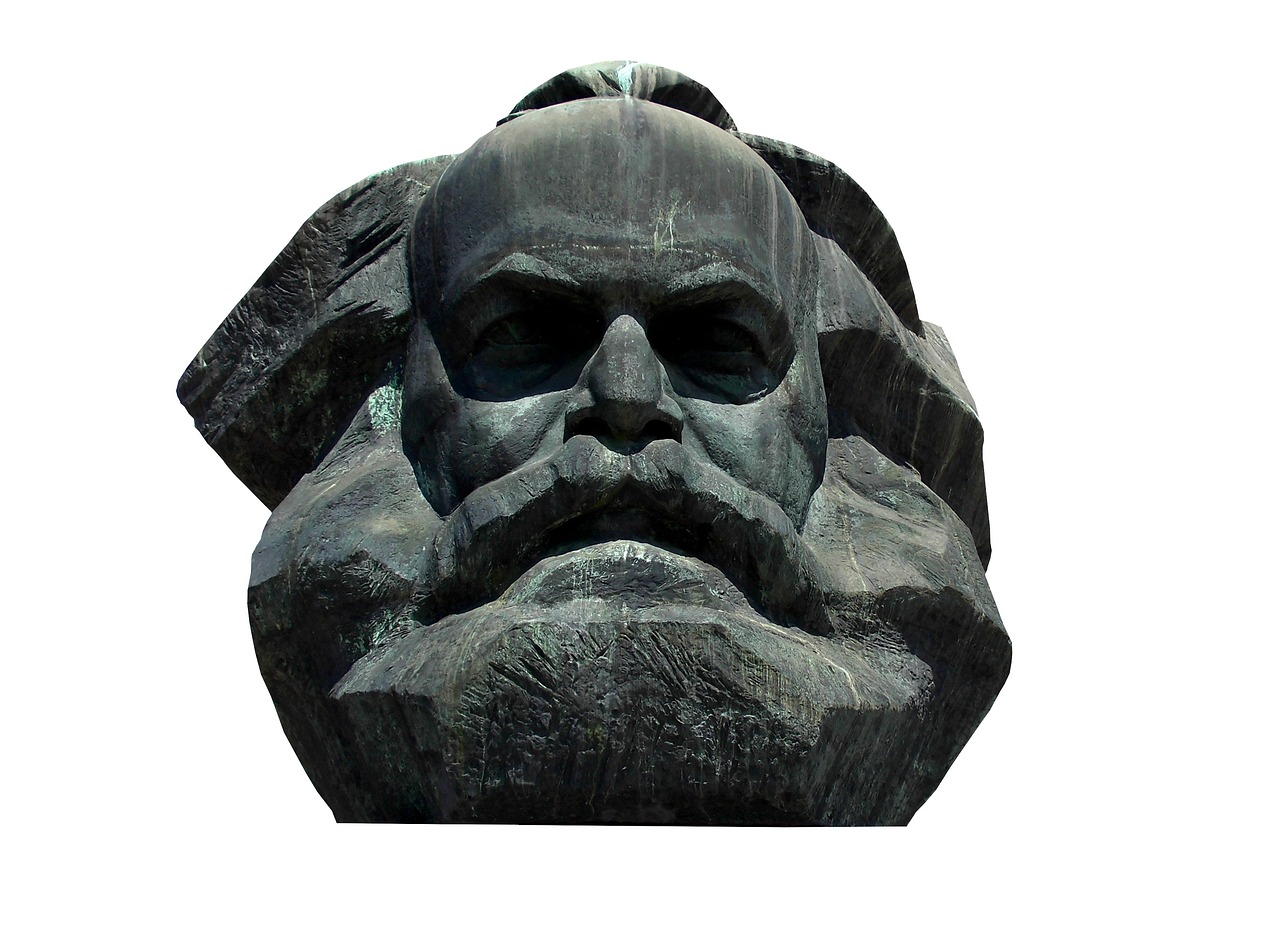
Critiques of Marxism
Marxism, while influential and foundational to many political ideologies, is not without its critics. The critiques of Marxism often stem from various angles, including economic, philosophical, and practical perspectives. One of the most prominent criticisms is its perceived economic determinism. Critics argue that Marxism reduces complex social phenomena to mere economic factors, ignoring the roles of culture, ideology, and individual agency. This perspective suggests that Marxists fail to account for how human behavior and societal dynamics can transcend economic class structures.
Another significant critique revolves around the concept of the proletariat revolution. Detractors contend that Marx's prediction of an inevitable uprising of the working class against the bourgeoisie has not materialized in the way he envisioned. Instead, many capitalist societies have seen a rise in the middle class and a general improvement in living standards for workers, leading some to argue that Marx's analysis is outdated. This raises the question: if the working class is not as oppressed as Marx suggested, what does that mean for the validity of his theories?
Moreover, the practical applications of Marxism in the 20th century have faced scrutiny. The establishment of socialist states, particularly in the Soviet Union and China, often resulted in authoritarian regimes that contradicted Marxist ideals of freedom and equality. Critics highlight the disparity between Marx's vision of a classless society and the reality of totalitarian governments that emerged under the banner of Marxism. This has led to a widespread belief that Marxism can inadvertently lead to oppression rather than liberation.
In addition to these critiques, some argue that Marxism lacks a coherent framework for governance. While Marx provided a critique of capitalism, he did not offer a detailed blueprint for how a socialist society should operate. This absence of practical guidance has led to varied interpretations and implementations of Marxist theory, resulting in confusion and inconsistency among its followers. As a result, many wonder: can a theory that lacks a clear path to implementation truly be considered viable?
Despite these criticisms, Marxist theorists have responded robustly, arguing that many critiques stem from misunderstandings of Marx’s work. For instance, they assert that Marx did not advocate for a one-size-fits-all approach to revolution but rather emphasized the importance of context and specific historical conditions. Furthermore, they argue that the failures of certain socialist states do not invalidate Marxism as a theory but rather highlight the complexities of translating theory into practice.
To sum up, the critiques of Marxism are varied and complex, encompassing economic, philosophical, and practical dimensions. While some critiques point to the shortcomings of Marxist theory, others highlight the challenges of its implementation in real-world scenarios. As the debate continues, it remains essential to engage with these critiques thoughtfully, recognizing both the strengths and weaknesses of Marxism in understanding our socio-political landscape.
- What are the main criticisms of Marxism? The main criticisms include economic determinism, the failure of the proletariat revolution to occur as predicted, and the authoritarian outcomes of some socialist states.
- How do Marxist theorists respond to critiques? They argue that many critiques stem from misunderstandings of Marx's work and emphasize the importance of historical context in applying Marxist theory.
- Is Marxism still relevant today? Yes, many contemporary social movements draw inspiration from Marxist principles to address issues of inequality and injustice.
Frequently Asked Questions
- What is the main idea behind Marxism?
At its core, Marxism is about understanding the struggles between different social classes, particularly the conflict between the working class (proletariat) and the capitalist class (bourgeoisie). It argues that these struggles drive societal change and that a revolution is necessary to create a classless society.
- How did Karl Marx's background influence his theories?
Karl Marx was deeply affected by the socio-political climate of the 19th century, including the Industrial Revolution and the rise of capitalism. His experiences and observations of the inequalities faced by workers led him to develop his theories on class struggle and historical materialism.
- What is class struggle, and why is it important?
Class struggle refers to the ongoing conflict between different social classes, primarily between the proletariat and the bourgeoisie. It's crucial because it highlights how economic conditions and power dynamics shape society, leading to historical changes and revolutions.
- What role does the proletariat play in Marxism?
The proletariat, or working class, is seen as the key agent of change in Marxist theory. Marx believed that they would eventually rise up against the bourgeoisie, overthrowing the capitalist system and establishing a socialist society.
- How has Marxism influenced modern social movements?
Many contemporary social movements, such as those advocating for workers' rights, income equality, and social justice, draw inspiration from Marxist principles. Activists use these ideas to challenge systemic inequalities and promote social change.
- What are some common critiques of Marxism?
Critiques of Marxism often focus on its perceived economic determinism, the failure of some socialist states, and the argument that it overlooks individual freedoms. Critics argue that Marxism can lead to authoritarianism, while supporters contend that true Marxism has never been fully realized.
- Is Marxism still relevant today?
Yes, Marxism remains relevant as it continues to influence political discourse and social movements. The ongoing issues of inequality, exploitation, and class conflict resonate with Marxist ideas, prompting discussions about its application in modern society.







